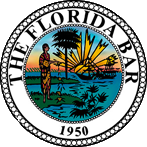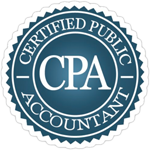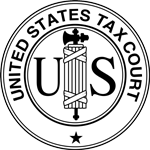- Free Consultation: (772) 418-0949 Tap Here to Call Us
Essential IRS Tax Levy Appeal Information
One of the harshest activities the IRS can do is to enforce a levy against you.
If you do not pay your taxes (or make arrangements to settle your debt), and the IRS determines that a levy is the next appropriate action, the IRS may levy any property or right to property you own or have an interest in. For instance, the IRS could levy property that is yours but is held by someone else (such as your wages, retirement accounts, dividends, bank accounts, licenses, rental income, accounts receivables, the cash loan value of your life insurance, or commissions). Or, the IRS could seize and sell the property you hold (such as your car, boat, or house).
How Does The IRS Notify You of a Levy? Can I Appeal?

When the IRS is going to levy your bank account or garnish your wages, they will send a Notice of Intent to Levy (IRS Letter 1058 or LT11) in the mail. IRS is required to do so under Internal Revenue Code Section 6331(d). The Notice will list your right to appeal the levy within 30 days of the date of this Notice.
What Are Some of the Reasons To Appeal an IRS Tax Levy?
Here are some reasons to consider appealing a tax levy:
- You want to dispute the tax liability for a legitimate reason, provided you have not forgone the opportunity to do so.
- You are no longer liable for the tax because the Collection Statute Expiration Date time frame has expired.
- You will suffer financial hardship if the levy is enforced.
- You want to pursue a form of innocent spouse relief.
- You will submit an Offer in Compromise seeking to negotiate for a lesser tax amount than you owe.
- You have automatic stay protection from bankruptcy.
Usually, when you timely file for a CDP Hearing, the IRS is statutorily required to abstain from levying your property during the hearing process. Utilizing this time may allow for arriving at an optimal tax resolution.
What are the Options to Use for Appealing an IRS Levy?
There are three ways to appeal an IRS Levy. These are the Collection Due Process Hearing, Equivalency Hearing, and Collection Appeals Program. Each should be used based on specific circumstances.
Collection Due Process (CDP) Hearing
The process for requesting an appeal is by submitting in writing for a Collection Due Process (“CDP”) hearing within the 30-day deadline listed on the Intent To Levy Notice. If you miss the deadline, you can still request an appeal through other procedures; however, you will not have all the options and advantages available under a CDP hearing, such as going to a tax court to dispute the decision. Once you request a CDP hearing, the IRS will stop collection action on your account. The clock will also stop ticking on the collection statute of limitations. The IRS generally doesn’t levy assets during the CDP hearing process unless the tax collection is in jeopardy.
You may dispute the tax liability at a CDP hearing unless you were already given this opportunity from receiving a Notice of Deficiency, which would have provided such an opportunity.
Which Notices Provide for Collection Due Process (CDP) Hearing?
Collection Due Process (CDP) is available if you receive one of the following notices:
- Notice of Federal Tax Lien Filing and Your Right to a Hearing under IRC 6320
- Final Notice – Notice of Intent to Levy and Notice of Your Right to a Hearing
- Notice of Jeopardy Levy and Right of Appeal
- Notice of Levy on Your State Tax Refund – Notice of Your Right to a Hearing
- Post Levy Collection Due Process (CDP) Notice
How to Request a CDP Hearing to Appeal a Levy
It may be prudent to call the number on your levy notice to negotiate a possible resolution to your tax situation before requesting a CDP hearing. Making such a request to the IRS does not toll the 30-day requirement to submit a written request to a CDP hearing.
To request a CDP hearing, complete and submit IRS Form 12153 – Request for a Collection Due Process or Equivalent Hearing or submit a written request containing the items reflected on Form 12153.
The CDP Hearing request must be postmarked within 30 days after the IRS Notice of Intent to Levy date. If you cannot make the 30-day CDP deadline, you can still request an Equivalency Hearing by using the same form and checking off box seven on the form. Be sure to mail the request to the address listed on the Notice of Intent to Levy. To fax this, you must call the number listed on the Notice to get the correct fax number to send it to.
Equivalency Hearing (EH)
As mentioned, an Equivalency Hearing (E) might be an appeal option if you missed timely submitting for a CPD hearing. You have one year from the CDP notice date to file. At this hearing, you will have the opportunity to appeal the levy; however, you will not have the chance to go to tax court if you disagree with the Appeal’s decision. In addition, the IRS can still pursue collection activities during this process, whereas this usually is not the case when getting a CDP Hearing. So it’s essential to be aware of the dates of the notices.
Collection Appeals Program (CAP)
The Collection Appeals Program (CAP) is another option to appeal an IRS tax levy. The CAP process has some additional variations over a CDP Hearing but does not contain some of the advantages of using a CDP Hearing. You can elect for a CAP hearing before the IRS provides a Notice of Intent to Levy. When a notice is issued, you can appeal by the deadline on your Notice, which is typically 30 days.
Under the CAP procedure, you cannot dispute the amount of your tax liability.
When Should You Use a Collection Appeals Program (CAP)?
You should use CAP if you are unable to use a CDP. Although you can request the CAP procedure before the Notice of Intent to Levy is sent, bear in mind that any issues decided using the CAP may not be appealed at a later CDP hearing. Before doing so, you must understand all the impacts of electing a CAP over a CDP.
A CAP also provides the opportunity to use after the IRS has levied the property; usually, you must do so within two years from the levy date. Although the CAP procedure can provide quicker determination than a CPD hearing, the CAP appeal determination can not be challenged in Tax Court. In addition, the CAP is used by third parties where the IRS has wrongfully levied their property.
If you are unsure which appeals method fits your situation, talk to a tax professional who can help you.
Which Actions Are Collection Appeals Program (CAP) Available for?
Collection Appeals Program (CAP) is available for the following actions:
- Before or after the IRS files a Notice of Federal Tax Lien
- Before or after the IRS levies or seizes your property
- Termination, or proposed termination, of an installment agreement
- Rejection of an installment agreement
- Modification, or proposed modification, of an installment agreement
The Process for Requesting an Appeal Using the Collection Appeals Program (CAP)
The CAP levy appeal process can be done in two ways, depending on your collection contact with the IRS. The contact could be where you are dealing with an IRS Revenue Officer (RO) or have just received an IRS Notification or phone call (no RO).
If the IRS Notification or phone call is your only source of contact with the IRS, you should call the number listed on the IRS Notification or provided to you from your IRS call. It may be possible to avoid an IRS levy by trying to negotiate a solution to your tax issue.
If you cannot agree, you can then ask to appeal the decision by speaking directly to their manager. Within twenty-four hours of making this request, a manager should contact you. If you cannot then agree with the manager, your case will be forwarded to an IRS Appeals Office. You will not have to submit a written appeals request.
When dealing with an IRS Revenue Officer, the attempt to appeal is initially made by requesting a conference with their Collection Manager/Supervisor. If this conference does not resolve the issue, inform them that you will be submitting IRS Form 9423 – Collection Appeal Request. The completed form gets set to the IRS Collection Office you are dealing with.
What Happens After Requesting an Appeal of a Levy
A timely request generally prevents the IRS from commencing levy activity while an appeals process occurs. Even once you have filed for an appeal, you still may have the option of discussing your case for a resolution with an IRS Revenue Officer. You can withdraw your case anytime, especially if you find a solution. Once you submit the Appeal, someone from IRS Appeals will reach out to set up the time and date for your appeals conference.
The Appeals Office will issue a determination letter upon the conclusion of your conference. Provide you requested a timely CDP request, you will have the opportunity to appeal the decision in Tax Court. For Eqivalent Hearing or CAP request, you will not be allowed to contest in Tax Court.
Who Can Represent You During an Appeal of a Tax Levy

You have the option of representing yourself during the appeals process. If you want assistance, the following individuals can represent you:
- Licensed Tax Attorneys
- Certified Public Accountants
- Enrolled Agents
- Members of your immediate family
- For a business, a corporate officer, general partner, or regular full-time employee
Get Trusted Representation for Dealing with IRS Levy Appeals

Obtaining professional advice from a dedicated tax resolution professional may be ideal if you’re considering appealing a tax levy. It would be best if you had professional answers you could count on. Call today (772-418-0949), or complete an online inquiry form for a free consultation with experienced Tax Attorney-CPA-EA, Will Harmon of Harmon Tax Resolution, LLC. He will provide trusted representation so that you can put this behind you and get on to doing the things that matter most.
For additional information, please see the following blog articles:











